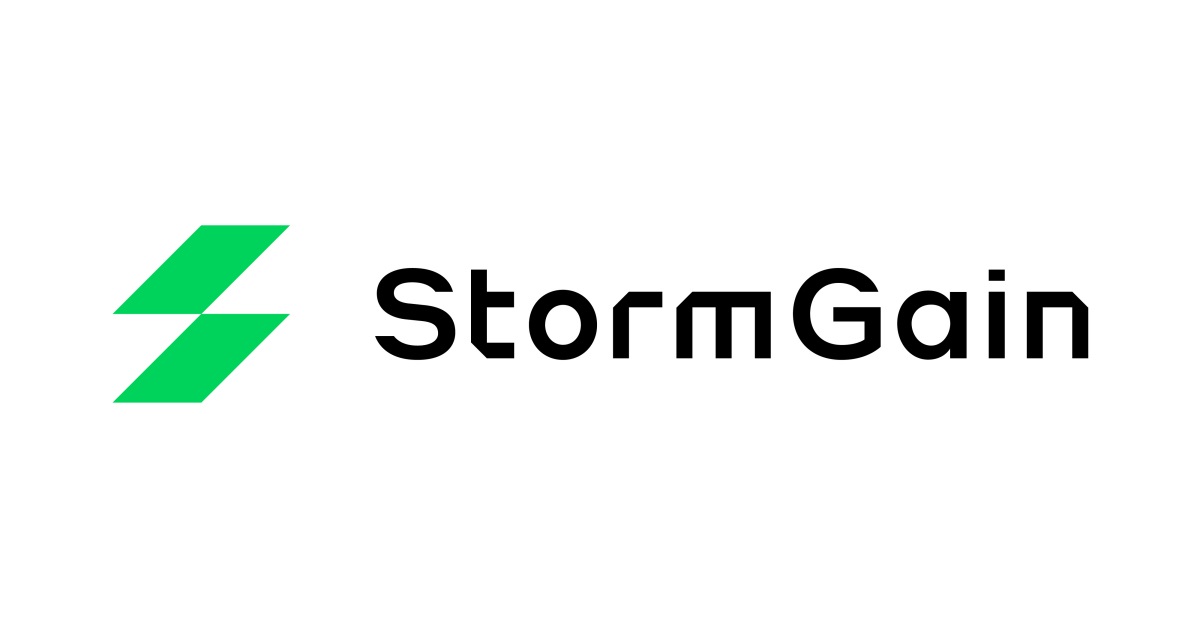
In late January, crypto detective ZachXBT reported on a potential hack of Ripple and the theft of 213 million XRP from the rJNL* address. The company's co-founder, Chris Larsen, revealed that personal wallets were hacked on 30 January. In his words, the attacks had nothing to do with the company or its functioning.
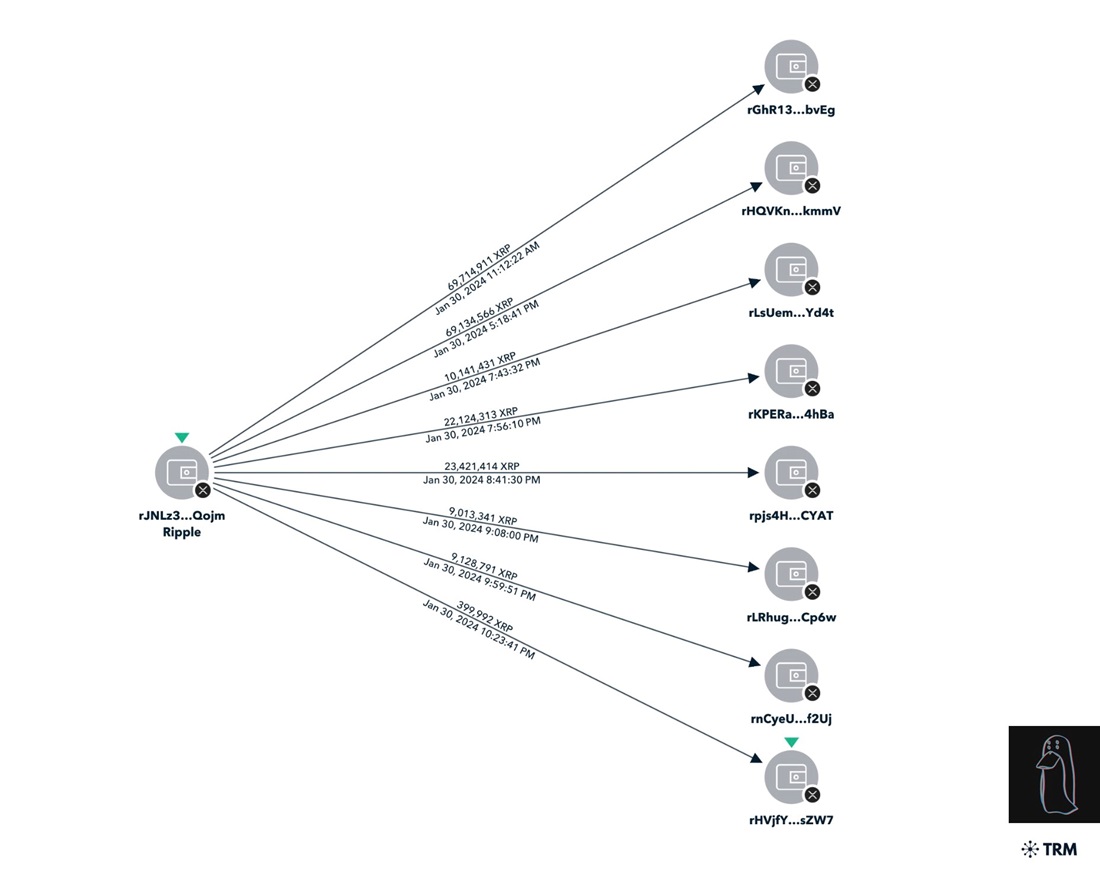
Image source: twitter.com/zachxbt
That would seem like the end of the story, as it's only due to Larsen's own carelessness. However, an investigation by Hacken, a company that audits the security of crypto projects, raises new questions.
In addition to the above-mentioned rJNL, the ru1B address has obvious signs of hacking, and it was also emptied in several goes on 30 January. Some funds were transferred from these addresses to rs1. We'll clarify what's what: rJNL and ru1B* are Larsen's wallets, and rs1* is the fraudster's wallet.
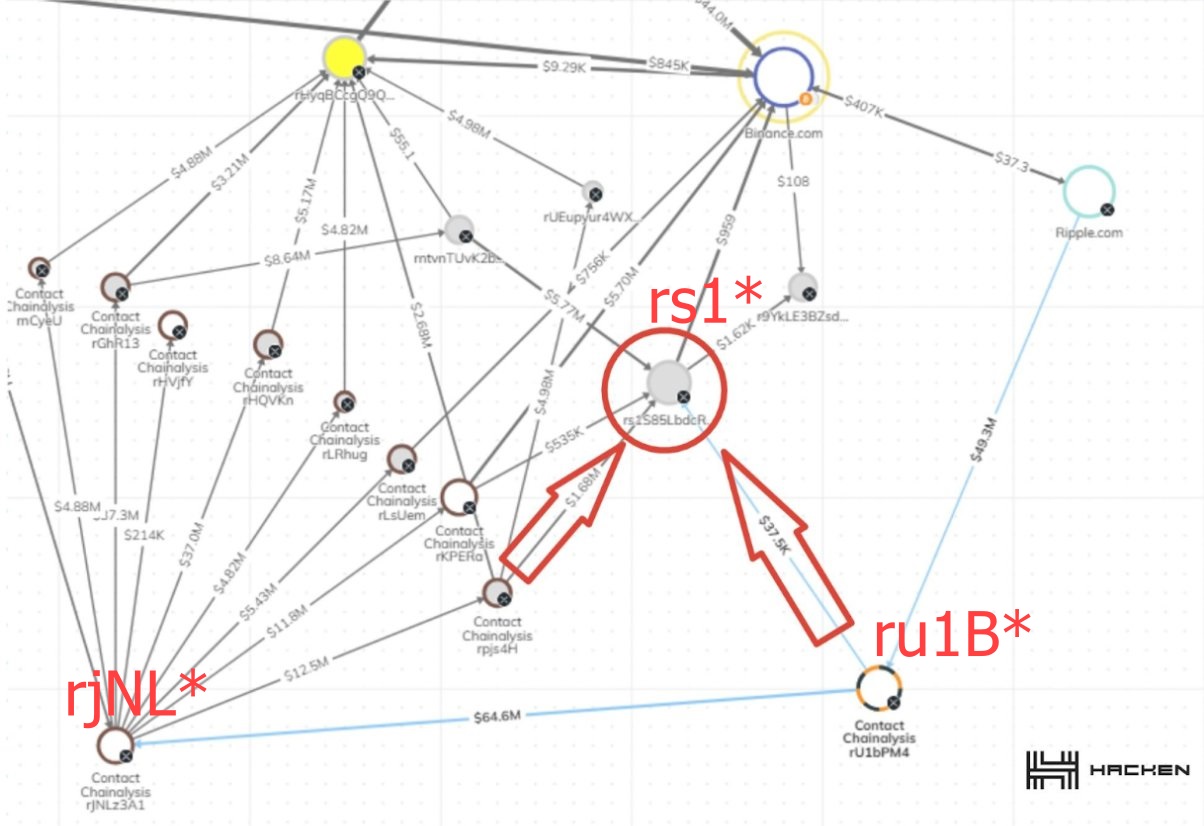
Image source: twitter.com/hackenclub
Next, the funds from rs1* go to crypto exchanges, with the most notable being Kraken with the address rLHz. The fraudster probably uses it to cash out, according to analysts. But how can one explain that the same rLHz address was previously (long before the hack) used by Larsen himself when he would directly send funds from ru1B*?
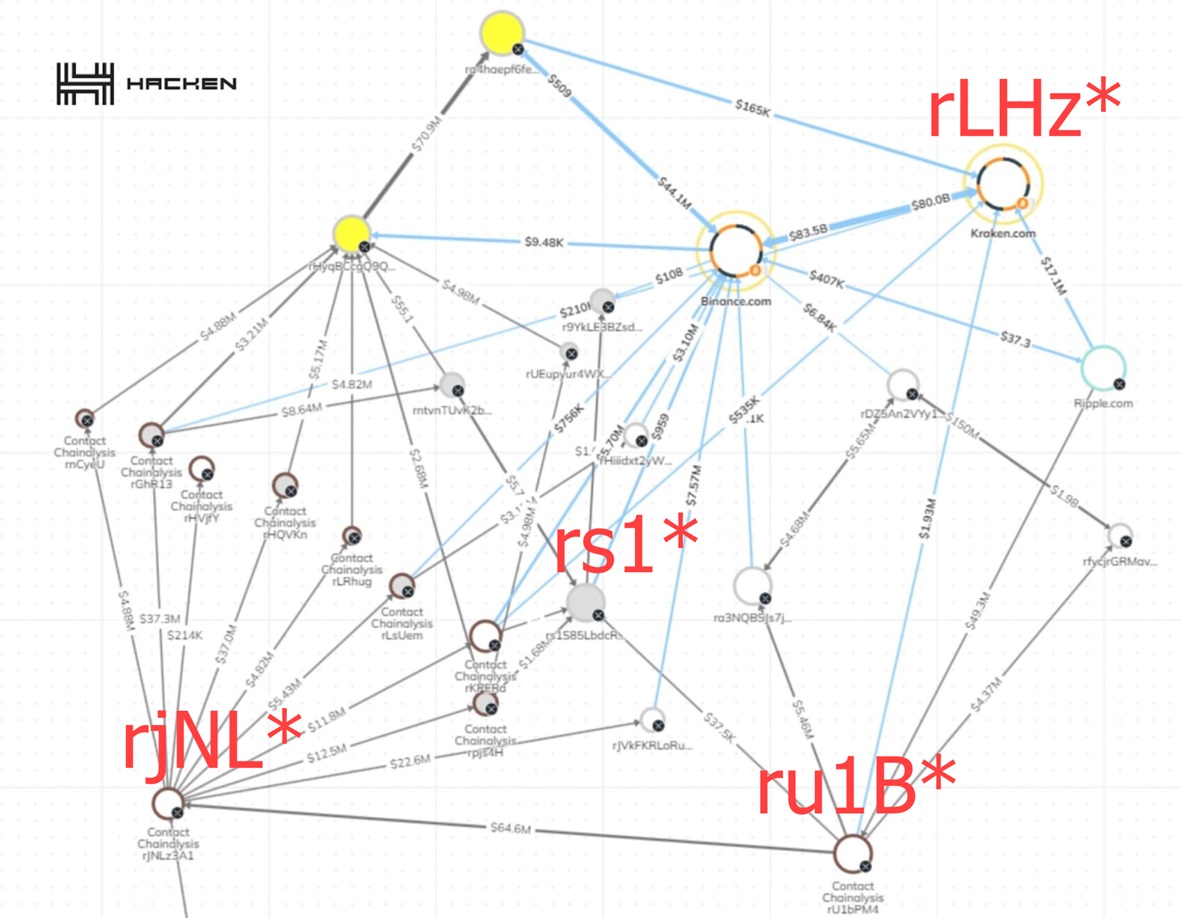
Image source: twitter.com/hackenclub
There could be several reasons for such a strange coincidence. For example, a company employee could've been behind the hack and used old financial channels for withdrawal. To avoid casting a shadow on the company's credibility, Larsen put the whole thing down to his own failures.
The incident could've been used to divert attention away from a major XRP cash-out by Ripple's management (Larsen is the executive chairman). Alternatively, the hype may have been used to build up reserves at a discounted price, though that's unlikely. Unfortunately, there are more questions than answers.
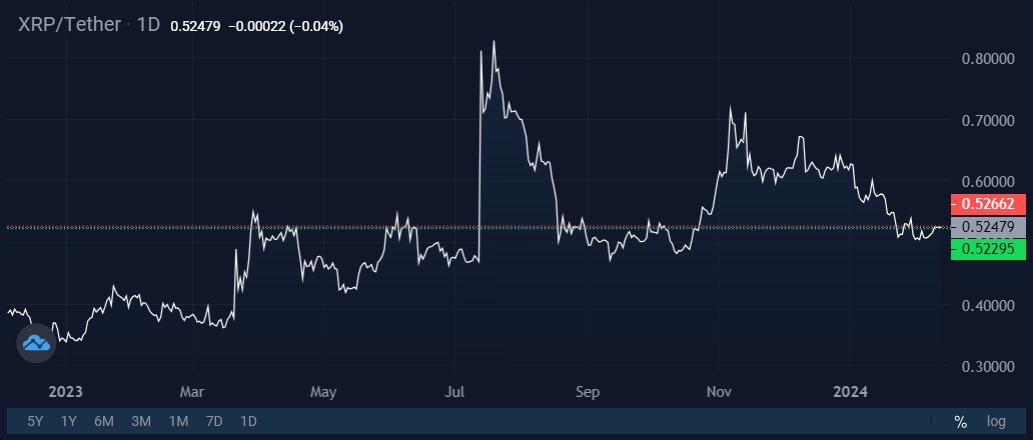
Image source: StormGain.com
This week, a court granted the SEC's request for Ripple's financial statements for the past two years. The case is related to the regulator's intention to recognise XRP as a security. If it's revealed that tokens were sold to institutional investors, the company will be charged with violating securities law and will receive large fines and a possible ban on continuing operations. The coin could collapse.
Six months ago, we covered this issue, urging caution among potential investors. Since then, XRP's price has dropped 32%.
StormGain Analytical Group
(platform for trading, exchanging and storing cryptocurrency)